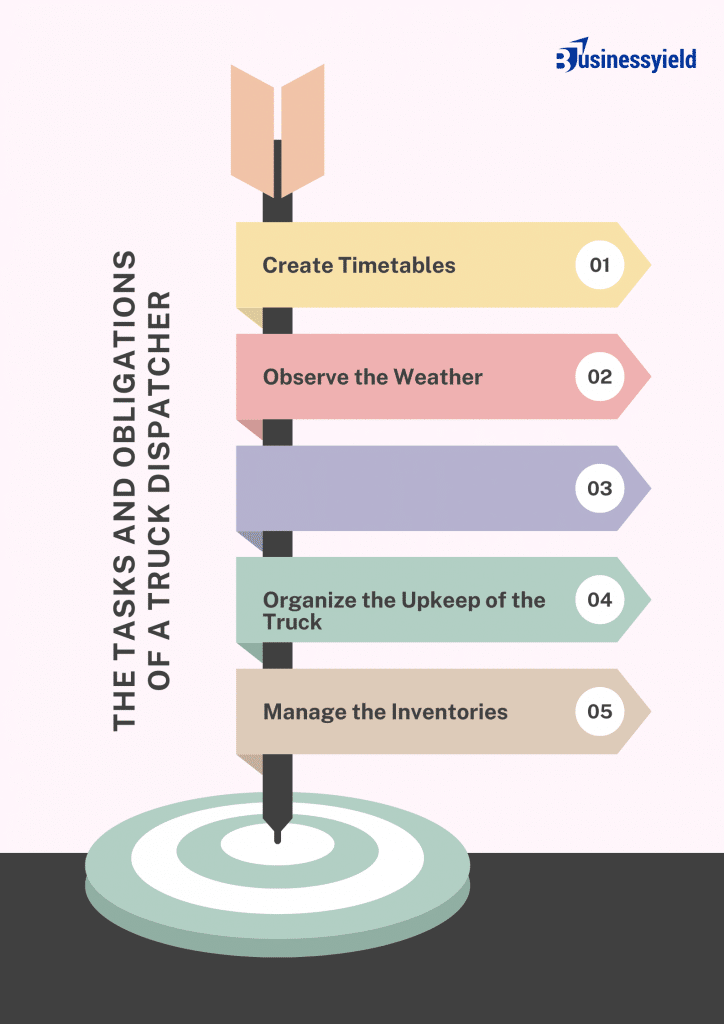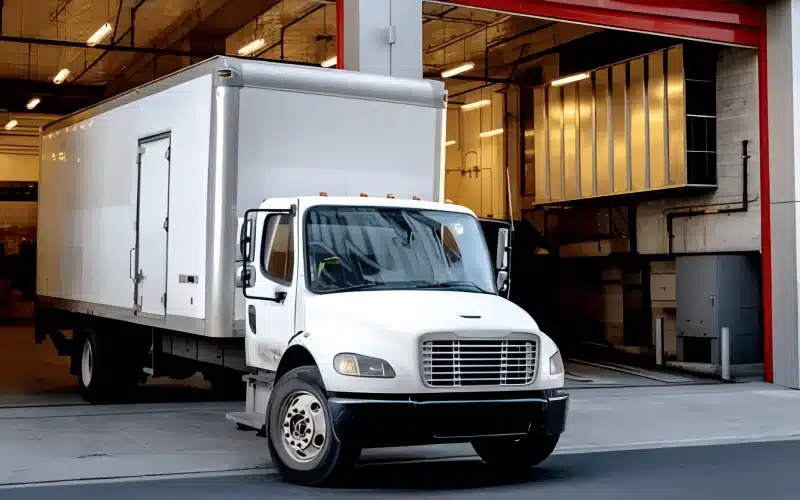Truck dispatchers play a critical role in the shipping and transportation world. They handle route planning, assign drivers to loads, and keep track of shipments to ensure everything runs smoothly. It’s a job that requires organization, quick decision-making, and strong communication skills to keep things on track, even when issues arise. But at the moment I know the real question on your mind is, “How much does a Truck Dispatcher Make?”
Well, I have done all the research and ground work for you because I understand how stressful it must be to do this all on your own. But we will have to go through some basics. If you do not want to waste anymore time, you can skip all these to the third subtopic. I have covered the actual figures there.
In the meantime, I’ll break down the key duties of a truck dispatcher, the average earnings you can expect, and practical ways to boost your pay if you’re already in the field or just starting out.
Key Takeaways
- Truck dispatchers are vital to the transportation industry, managing routes, schedules, and communication between drivers, clients, and warehouse staff to ensure timely and efficient deliveries.
- The median annual salary for truck dispatchers in the U.S. is around $52,060, with income varying based on factors such as the size of the fleet, location, type of trucking, and level of experience.
- Dispatchers can increase their earnings by starting with smaller regional companies and eventually moving to larger national firms, where higher pay and more responsibilities come with managing long-distance and high-volume freight.
- Effective truck dispatchers excel in communication, multitasking, problem-solving, and adaptability, using software tools to monitor routes, communicate with drivers, and coordinate logistics.
- Dispatchers must be prepared to handle unexpected issues like route changes, truck breakdowns, or weather-related delays, often needing to make quick decisions to keep operations running smoothly.
Who is a Truck Dispatcher?
A truck dispatcher might begin a normal day by first looking over the routes and calling every driver with their assignments. Imagine organizing 15 trucks at several delivery locations—each route must be modified for real-time problems including traffic congestion or last-minute client requests. To guarantee that every delivery goes without a hitch, this job calls both fast thinking and constant communication.
But let me give you a simple definition…
A truck dispatcher is an individual who oversees truck drivers’ routes and schedules. These people may assist in organizing the truck loading and unloading process. Additionally, they stay in touch with drivers as they travel their routes, and they may notify warehouse staff when a truck is on its way. Depending on their loads, truck dispatchers usually manage five to twenty trucks.
How Much Does a Truck Dispatcher Make?
With my recent research, the United States Bureau of Labor Statistics reports that the median annual compensation for truck dispatchers nationwide is $52,060. The type of trucking for which they are performing dispatching duties, the location, the employer, and other variables may all affect their compensation.
To give you a better sense of the range, dispatchers working with large freight companies on cross-country hauls often report higher earnings due to the complexity and volume of loads, while regional or local dispatching roles might offer a steadier but smaller income. For example, one dispatcher I worked with in California noted that their income jumped by 15% after moving from a small regional firm to a national shipping company handling larger fleets.
Pay may also be impacted by experience and the size of the fleet you are dispatching for.
Some Ways to Increase a Truck Dispatcher’s Income?
If you’re looking to grow in this field, consider starting with a smaller regional company where you can get hands-on experience. Many successful dispatchers I’ve spoken with began with local dispatch roles before moving into national-level companies, where the stakes are higher, but so is the pay. That firsthand experience can be invaluable, giving you insights into route optimization and volume management that larger firms value.
As time goes on you can be eligible for a long-distance shipping position with bigger responsibilities if you have experience with short-distance shipping.
Larger businesses typically spend more on shipping more freight over longer distances.
So eventually, organizing a lot of freight shipments might increase your income because volume is a major performance factor for making more money in many dispatching positions.
Duties and Responsibilities of a Truck Dispatcher?
Managing and scheduling freight transportation while liaising with drivers, suppliers, and vendors is the main responsibility of a truck dispatcher. And while it may differ slightly based on your sector or the organization you work for, as a truck dispatcher, you can anticipate the following fundamental tasks and obligations:
#1. Keep Records
All dispatch and trip records, ideally in digital format, must be maintained by a truck dispatcher. Shipments, drivers, working hours, and schedule information must all be compiled in these records. Effective record-keeping procedures make it simpler to manage resources and follow different safety guidelines.
#2. Take Proactive Measures to Resolve Problems
Problem-solving is a big part of the job. For instance, if a truck breaks down on a rural route, it’s the dispatcher’s responsibility to coordinate with local repair services and reroute nearby drivers to cover any delivery delays. It’s about staying calm under pressure and quickly coming up with practical solutions—a skill that only improves with experience in the field.
Furthermore, maintenance and medical costs can be reduced by taking care of possible issues before they arise. Before working, for example, they must make sure the driver is in optimal health. In addition, they need to prioritize and evaluate every circumstance.
#3. Take calls
Excellent communication skills are essential for truck dispatch work. All calls from drivers and vendors, emergency or not, must be routed to a truck dispatcher. They are also in charge of recording every call.
Truck Dispatcher Responsibilities Checklist.pdf
#4. Make a Plan
The most efficient driving routes must be planned by truck dispatchers. This procedure comprises analyzing the weather and, if required, offering drivers appropriate alternate routes. Planning ahead guarantees that management can support and handle crises for the drivers more effectively.
#5. Locate Possible Customers and Haggle Over Prices
Truck dispatchers must occasionally contact prospective customers in order to expand the clientele and boost sales. They bargain with the clients about prices during this process to make sure everyone is happy. The kind of product being sent and the distance traveled may affect these prices.
#6. Information Relay Between Drivers and Clients
To guarantee a smooth transportation process and that every delivery time is fulfilled, truck dispatchers need to be in close contact with both drivers and customers. Maintaining solid relationships with drivers and customers is another benefit of dispatchers having excellent communication skills.
#7. Reports to Management
Truck dispatchers are required to report departmental progress to higher management. By delivering these information on schedule, the business may make more informed decisions about shipments and have a better understanding of the market.
Skills of a Truck Dispatcher
The following list of abilities can help you succeed as a truck dispatcher:
#1. Communication
As a truck dispatcher, having excellent communication skills is crucial. Talking on the phone with drivers who might not speak to anybody else during the day will take up a lot of your time. Even in times of stress, it’s critical to maintain empathy and compassion. Additionally, you will be contacting shippers and receivers via phone and email on potential problems or to get clarification on driver instructions. When speaking with coworkers or colleagues, it’s critical to maintain a composed and professional manner.
#2. Developing Relationships
The ability of truck dispatchers to establish a personal connection with drivers is advantageous. Because they are aware of how each driver functions, they may be able to handle problems more quickly when they occur. If they get along well with drivers, they might also be able to help them stay composed in emergency situations.
#3. Software Skills
Truck dispatchers use a variety of computer systems and other technological tools in their operations. Dispatchers connect with drivers using phone software and track shipments using GPS tracking devices. To keep track of drivers’ hours and establish schedules, they also use dispatching and field management software.
#5. Multitasking
Imagine for a minute handling a situation where two drivers call in with last-minute route changes while a customer requests an ETA for their delivery. A seasoned dispatcher can quickly prioritize by checking which routes have alternative paths and updating drivers and customers accordingly. It’s a juggling act, and it gets smoother with practice.
Maintaining communication with your shippers, drivers, and customers while managing several jobs and fulfilling deadlines is crucial.
#6. Flexibility
Routes can occasionally alter and take you in a different direction than you had intended. You may be productive in your work without adding to the stress of your drivers or clients if you maintain a certain amount of flexibility and adaptability.
#7. Thinking Critically
Critical thinking is frequently used by truck dispatchers to solve issues and reach conclusions. When a truck driver has an issue, the dispatcher usually tries to fix it. When a trucker has a mechanical issue, a dispatcher frequently has to know how to bring a repair or support crew to the scene. In other cases, these people might immediately adjust their plans or itineraries in response to unforeseen events like bad weather or auto maintenance.
#8. Multitasking
Multitasking is essential for dispatchers since they frequently handle many tasks at once. Additionally, they must be able to set priorities for jobs as needed. A dispatcher with a high level of organization is probably better able to keep track of and guarantee that different parts of the task are completed. Additionally, dispatchers who pay attention to detail can reduce mistakes and address problems more rapidly.
#9. Interpersonal abilities
Dispatchers frequently interact with customers, mechanics, and drivers. A dispatcher can overcome obstacles in the course of their work by possessing good interpersonal skills. A dispatcher has a better chance of succeeding in their role if they can handle incoming information professionally and listen well.
#10. Trucking expertise
Dispatchers benefit from having some knowledge of the trucking business. Industry-savvy dispatchers are more able to comprehend some of the difficulties drivers encounter. Additionally, dispatchers benefit from knowing the industry’s federal and state regulations and how to adhere to them.
For those new to dispatching, a strong foundation in communication and problem-solving is key. If you’re just starting, consider shadowing an experienced dispatcher to see firsthand how they handle unexpected issues or keep drivers updated. Observing these skills in action can prepare you for handling multiple tasks under tight deadlines.
The Tasks and Obligations of a Truck Dispatcher

The following tasks are carried out by a truck or fleet dispatcher:
#1. Create Timetables
The routes that truckers use to get to their destinations are decided by a truck dispatcher, who also makes schedules for them. They might also let them know if their intended routes alter. Additionally, dispatchers may establish timelines that outline staffing assignments for weeks or months at a time. When necessary, they occasionally locate other drivers.
#2. Observe the Weather
To guarantee the timely delivery of products and the safety of drivers, a dispatcher may also keep an eye on the weather. A dispatcher may decide to alter routes or postpone a cargo due to significant weather conditions. Drivers and customers are informed of these issues by the dispatcher.
#3. Keep logs
Typically, dispatchers have a role in keeping track of each trucker’s driving hours. For safety reasons, the government limits the amount of time truck drivers can spend on the road. As a result of this rule, truck drivers keep track of their hours worked and make sure to take breaks when necessary. Dispatchers assist in verifying these records’ accuracy and looking for mistakes.
#4. Organize the Upkeep of the Truck
Dispatchers occasionally assist in scheduling and planning auto maintenance. These people may work with mechanics to arrange maintenance tasks and make sure the right tools are accessible. In order to guarantee that there is a sufficient fleet of trucks accessible at all times, dispatchers frequently try to space out truck maintenance.
Truck Dispatcher Income-Boosting Tips Template.pdf
#5. Control the inventories
Dispatchers also keep track of shipments and inventory. A dispatcher is in charge of making sure that items reach their destinations promptly and undamaged. They also respond to inquiries from clients about shipment-related problems, such as broken items or delayed deliveries.
What kind of workplace does a truck dispatcher work in?
To arrange deliveries or provide shipping instructions, dispatchers often get in touch with drivers and clients. Dispatchers spend a lot of time on the phone as a result. So dispatchers can operate from home using remote call equipment, or they may work in an office that typically looks like a contact center. Some dispatchers have a dual job where they work from home and in an office.
What equipment is used by truck dispatchers?
To monitor, view, and control dispatch operations, truck dispatchers use a variety of technologies and software, such as:
- Software for truck scheduling and routing
Truck dispatchers can use this software to plan and develop new routes for their drivers. It offers a map view that allows dispatchers the freedom to add stops and change routes in real time, saving them time and money.
- Fleet management
The activities involved in fleet management are made easier by this software. It guarantees improved route planning, incident tracking, and driver management from the truck dispatcher. Additionally, it maintains a record of all communications sent along the journey.
- Journey locator
Using GPS tracking software, dispatchers can keep track of every journey that is underway. This program allows the truck dispatcher to choose which driver to send to a certain location at a specific time, ensuring that they make better educated and effective judgments.
- Share Direction Tools
Adding and communicating directions to a new stop is made possible via the “share directions” function. It assists the motorist in making the most of their time and reaching all required locations.
How Much Does a Truck Dispatcher Make a Week?
Experience, geography, and business size can all affect a truck dispatcher’s weekly income. In the United States, truck dispatchers make an average of $848 a week as of October 2024, with the highest paid earning $1,057.
How Much Does a Truck Dispatcher Make a Month?
The average monthly salary for a truck dispatcher in Arkansas is $2,744, which is based on an annual salary of $32,934.
What are 4 of the roles of a dispatcher?
Taking calls, scheduling dispatches, assigning loads, mapping locations, and directing routes are all part of the dispatcher position. Strict adherence to accepted practices and relevant laws and regulations will be required of you.
Conclusion
Transporting goods from point A to point B is only one aspect of truck dispatching. It involves determining the most effective routes, resolving unforeseen problems, and maintaining open channels of communication between management, drivers, and customers. This role will change as technology continues to transform logistics. If you’re thinking about a career in dispatching, keep in mind that every successful delivery relies on a dispatcher’s flexibility and ability to adjust to changing circumstances—skills that require dedication and time.
- HOW TO BECOME A TRUCK DISPATCHER: Best Tips to Becoming a Truck Dispatcher
- FUTURE BUSINESS IDEAS 2023-2030 (Top 13+ lucrative Ideas)
- 21+ Best Jobs in 2023 that Pay $40 an Hour With and Without a Degree
- Dividend Mutual Funds: Definition, How they Work, Pros & Cons
- How to Start a Trucking Business in 8 Steps






